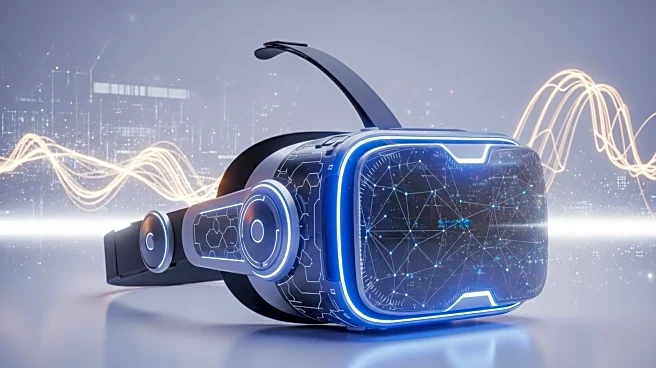What is the story about?
What's Happening?
Meta's current retail strategy for virtual reality (VR) products is facing significant challenges in effectively reaching the mass market. Despite the standalone capabilities of devices like the Oculus Quest, which have made VR more accessible, the lack of robust infrastructure for product demos remains a barrier. Meta relies heavily on partner stores such as Best Buy, Target, and Walmart to showcase its VR headsets, but the quality of these displays is inconsistent, often neglected, and fails to provide the impactful first impression necessary for consumer adoption. Apple, in contrast, has successfully integrated its Vision Pro demos into its retail experience, offering curated showcases that highlight the product's best features. Meta's efforts, including roadshow demos, have been short-lived and tied to specific events, lacking a consistent retail strategy. The absence of a streamlined demo mode in Meta's Horizon OS further complicates the onboarding process for new users, potentially hindering consumer interest.
Why It's Important?
The success of Meta's VR products in the consumer market is crucial for the company's growth in the wearables sector. A robust retail strategy that effectively demonstrates the capabilities of VR headsets is essential to drive sales and expand market share. Without a consistent and impactful demo experience, Meta risks losing potential customers to competitors like Apple, which have mastered the in-store demo process. The ability to provide a memorable first experience is key to converting interest into sales, and Meta's current approach may not be sufficient to achieve this at scale. As VR technology continues to evolve, establishing a dedicated retail presence that can offer demos, fittings, and support services will be vital for Meta to maintain competitiveness and capitalize on the growing interest in augmented reality (AR) and smart glasses.
What's Next?
Meta is expected to reveal more about its long-term retail strategy at the upcoming Meta Connect 2025 event. The company may consider opening more of its own stores or enhancing partner displays to improve the demo experience. Additionally, Meta's upcoming AR glasses, which reportedly won't be EssilorLuxottica products, will necessitate a dedicated retail presence capable of handling demos and support services. This shift could lead to the establishment of environments similar to LensCrafters, tailored for VR and AR products. The development of a polished demo environment within Meta's Horizon OS could also be a strategic move to streamline the onboarding process and enhance consumer engagement.
Beyond the Headlines
The challenges faced by Meta in its VR retail strategy highlight broader issues in the tech industry regarding consumer adoption of emerging technologies. The need for hands-on experience is critical for technologies like VR, which cannot be fully appreciated through traditional marketing channels. This situation underscores the importance of innovative retail strategies that prioritize user experience and product demonstration. As the industry moves towards more immersive technologies, companies must adapt their retail approaches to meet consumer expectations and drive adoption.

















